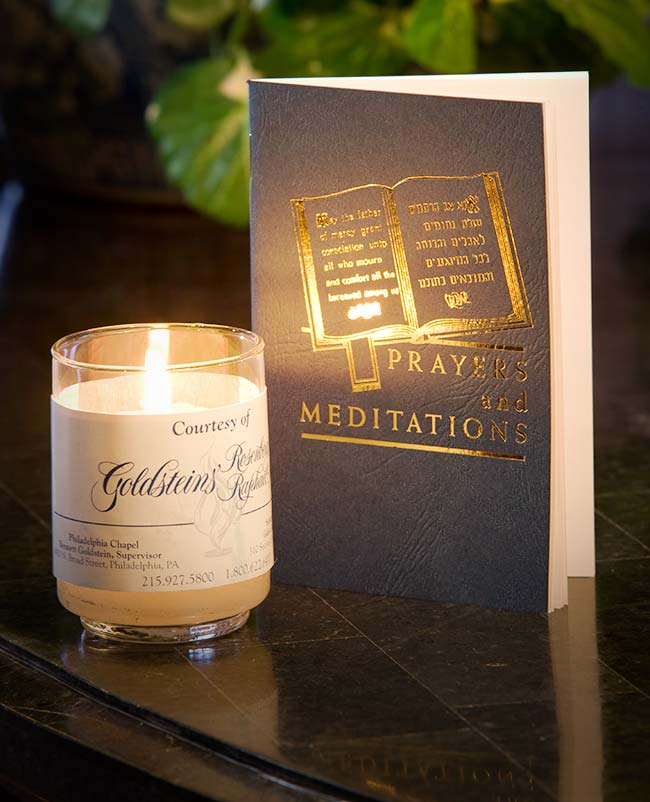Sitting Shiva
What is shiva and what does it mean?
- Shiva is derived from the word sheva, which means seven, signifying the seven days of mourning. It is a time referred to as – “sitting shiva” and its primary purpose is to provide a time for spiritual and emotional healing, where mourners join together. A person sits shiva for a parent, spouse, sibling or child. Shabbat is considered part of the shiva period and does not end the mourning.
- Traditionally, shiva is held in the home of the person deceased because it is believed that is where the spirit of this person will continue to dwell and where memories have occurred. Shiva focuses on the mourners and is when family and friends come to comfort them.
- A memorial candle is lit, because in Jewish tradition it is believed that a person’s soul is like a flame that brings light into others lives. The candle burns for 7 days. In subsequent years, a yahrzeit candle will be lit to commemorate the date of death.
- The people sitting shiva sit on low benches as a sign of mourning. While the funeral home provides chairs, one could also use a couch with the cushions removed or even sit on the floor. This is a symbol of depression that the mourner is experiencing.
- During shiva, a mourner is expected to ignore their own physical beauty.
- Mirrors are covered to remind the mourners that shiva is a reflection of loneliness and not about social acceptance.
- Shoes are removed.

Shiva Prayers
Services are held in the home, because mourners are not expected to leave their home during shiva, nor dress for public display. Shacharit is said in the morning, Mincha in the late afternoon and Maariv in the evening. A Minyan (10 people required for certain prayers) is needed in order to conduct the prayer services and it is customary for people to call upon the family at these times. At the end of each service the Mourners Kaddish is recited.
Ending Mourning Period
The last day of shiva is observed for only a few short hours. Comforters are expected to say to the mourners:
No more will your sun set, nor your moon be darkened, for God will be an eternal light for you, and your days of mourning shall end. (Isaiah 60:20)
Like a man whose mother consoles him, so shall I console you, and you shall be consoled in Jerusalem. (Isaiah 66:13)
Mourners then get up and go outside for the first time since the funeral, and take a short walk around the block.
Mourning Last 30 Days
Shloshim means thirty, and identifies the thirty days after the death. Mourners are expected to limit their social activities and should not cut their hair or shave during this 23 days period after the 7 days shiva.
What to expect at Shiva
What should you expect if you are attending a Shiva? Most people gather to comfort the family who has lost someone. It is also a time for everyone to share stories about the deceased. Conversations generally center around the family and listening to their memories. Shiva is held for family and friends to begin the healing process.
The mirrors in the home may be covered. This is a Jewish custom because during the mourning period the family is not to concern themselves with their own reflection, so there is no need for mirrors. They will also sit on low chairs, literally expressing their feelings of sadness.

Immediately following the funeral, the family and guests will be served food, which is called the meal of condolence. During the mourning period, the family often receives meals, sweet trays, and food from friends. This is because they are not to work during this time, so having meals prepared is very helpful. Other than food, it is not necessary to bring anything else to a Shiva.
The dress code for Shiva can vary depending on the family. It is recommended that you dress in business casual clothing, meaning no ties or jackets required for men, and pants and skirts are acceptable for women.
Many people ask about children at Shiva. This is dependant upon your relationship with the family, the age of the children, and the family’s wishes. If you are uncertain, you should probably not bring them.





